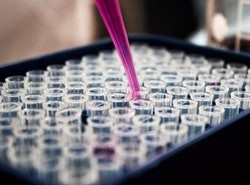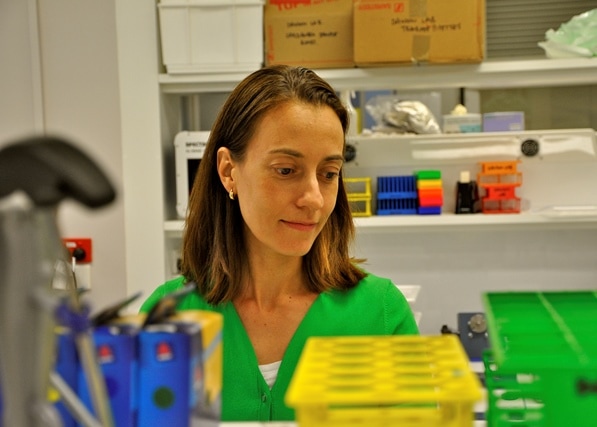
A blood test to detect cancer relapse
Published: 10/7/19 11:23 PM

Sarah-Jane Dawson
Breast cancer is the most common female cancer in Australia. Most patients diagnosed with early stage breast cancer are treated effectively with surgery and/or cancer treatment such as chemotherapy, hormone therapy and radiotherapy, to lower the risk of the cancer returning. However, some patients who undergo these therapies will have a small number of cancer cells remaining after treatment that are impossible to detect using current medical technology. Over time the cancer will return in these patients and it can be very difficult to treat, leading to poor health outcomes. It is essential that new laboratory technologies are found to detect when a small number of cancer cells are still present, as it is can be more effective to treat cancer cells whilst still in small numbers.
Associate Professor Sarah-Jane Dawson is using a highly sensitive molecular genetic technique, to detect and analyse cancer DNA which has escaped cancer cells and is floating in the bloodstream, known as circulating tumour DNA (ctDNA). This will be achieved by collecting and analysing a small sample of blood. This technique has the potential to act as a ‘liquid biopsy’, an alternative to invasive tissue biopsies. This exciting development would allow for non-invasive and real-time monitoring to detect if hidden cancer cells are still present.
This technology has the potential to identify which patients are at risk from the cancer returning and detect relapse months before it is clinically evident that the cancer is present. It also enables the characterisation of the genes of the re-growing cancer cells to find new gene targets and facilitate early intervention with alternative drug treatments. This innovative test has the potential to improve detection, treatment and health outcomes of those with high-risk early stage breast cancer.